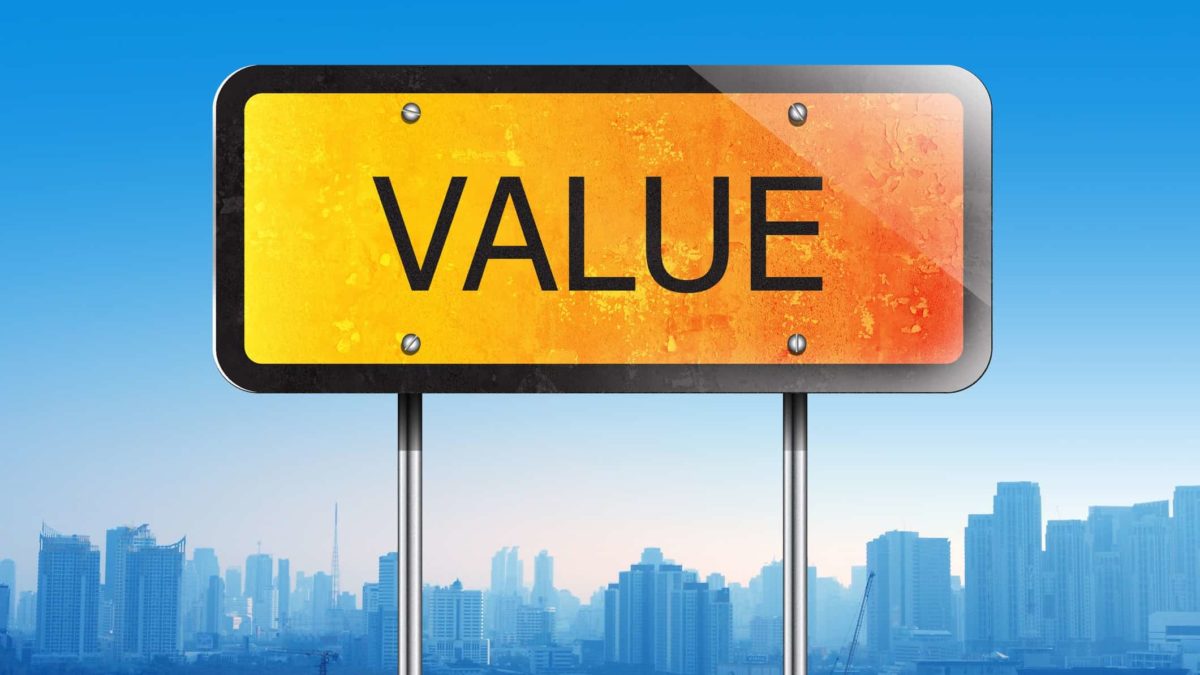It's funny how when we have a market downturn, everyone suddenly starts talking about value investing and ASX value shares. Value investing is often touted as one of the great investing strategies to follow, together with 'growth investing and even 'dividend investing'. But what exactly is value investing, and why does it suddenly seem all the rage?
Value investing is perhaps most closely associated with the legendary investor Warren Buffett. It's a strategy that Buffett has used and honed over decades, and one he credits with building his vast fortune through the now-gigantic investing conglomerate that he runs, Berkshire Hathaway Inc. (NYSE: BRK.A)(NYSE: BRK.B).
We'd probably all be familiar with some of the famous quotes Warren Buffett has given investors over the years. But some sum value investing up quite nicely. "Price is what you pay, value is what you get" is one. "Be fearful when others are greedy, and be greedy when others are fearful" is another.
At its core, value investing involves assessing the value of a company (using fundamental analysis) through your own lens. Then comparing it to the value that the market is placing on it. If your valuation is far higher than what the market thinks, you might be onto a winner. Conversely, if the market is pricing a share well above your own valuation, it might be time to sell under a value investing framework.
What would Buffett do?
Indeed, Buffett's right-hand man at Berkshire, Charlie Munger, once described value investing as 'the only type of successful investing':
I think all successful investment is value investing in the sense that you're trying to get better prospects than you're paying for… There's no great company that can't be turned into a bad investment, just by raising the price.
That contrasts to growth investing, which many investors might define as buying a fast-growing company and holding on (apologies for the gross oversimplification). This has been the style of investing that has arguably been the most popular over the past decade. Many investors have enjoyed eye-watering returns from 'growth shares' such as Amazon.com Inc (NASDAQ: AMZN) and Tesla Inc (NASDAQ: TSLA). And, here on the ASX, companies like Pro Medicus Limited (ASX: PME).
Indeed, over the past 10 years, S&P Dow Jones Indices tells us that the S&P/ASX 200 Growth Index has returned an average total return of 11.28% per annum. In contrast, the S&P/ASX 200 Value Index has managed a total return average of 8.36% per annum over the same period.
Growth Investing vs. Value Investing…
As my Fool colleague Bernd covered earlier this week, this was probably assisted by the descent into a near-zero interest rate environment that we've seen over the past few years. He covered how a couple of expert investors are seeing the return of higher rates as an opportunity to get back into ASX value shares and fundamental analysis territory.
So it might be for that reason that many investors' attention is now turning to the value side of life. Most investors agree that the period of near-zero interest rates is rapidly drawing to a close. Our own Reserve Bank of Australia (RBA) is estimating a rate hike in 2023. But many expect one later this year. And we've already seen a savage selloff in many winners-until-recently companies that could be described as 'growth shares'. Think Block Inc CDI (ASX: SQ2) or WiseTech Global Ltd (ASX: WTC). Or perhaps REA Group Ltd (ASX: REA).
Perhaps we're in a Brave New World here in 2022.









